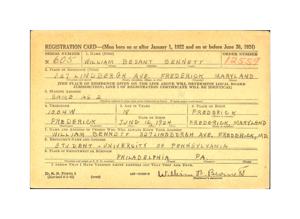In 1943, during the height of World War II, William B. Bennett Jr. faced a unique challenge as a medic. While the horrors of battle surrounded him, the most pressing issue he encountered was not a gunshot wound or shrapnel injury, but a painful boil on a soldier’s wrist. The experience highlighted the often-overlooked medical challenges faced by military personnel in wartime.
Unanticipated Medical Challenges in Combat
Being a medic in a conflict zone comes with numerous responsibilities. Medics are trained to handle life-threatening injuries, but they must also manage less severe conditions that can significantly impact a soldier’s well-being. In Bennett’s case, lancing a large boil was both a physical and psychological challenge. The procedure required not just medical skills, but also a steady hand and the ability to provide comfort to the affected soldier.
Bennett’s experience is a reminder of the diverse range of medical issues that arise in combat. While bullets and bombs dominate the narratives of war, conditions such as infections and skin ailments can also threaten the health and morale of troops. This aspect of medical care is crucial yet often overshadowed in discussions about wartime medicine.
The Role of Medics in World War II
The role of medics like Bennett was critical during World War II. They operated under extreme pressure, often in makeshift environments, and were responsible for the immediate care of injured soldiers. According to military medical historians, about 250,000 medics served during the war, facing countless challenges on and off the battlefield.
Bennett’s experience with the boil illustrates the reality of medical life in combat zones. Treating such infections was essential not only for the physical health of the soldiers but also for maintaining unit cohesion and combat effectiveness. A soldier unable to perform due to a treatable condition could impact the morale of an entire unit.
In the context of the broader war effort, medics like Bennett played a vital role in ensuring that soldiers received the necessary care to return to the fight. Their contributions, often overlooked in historical accounts, were integral to the war’s outcome.
In summary, William B. Bennett Jr. learned valuable lessons during his service, navigating both the complexities of medical treatment and the human side of warfare. His story serves as a testament to the resilience and adaptability of medics in one of history’s most tumultuous periods.
